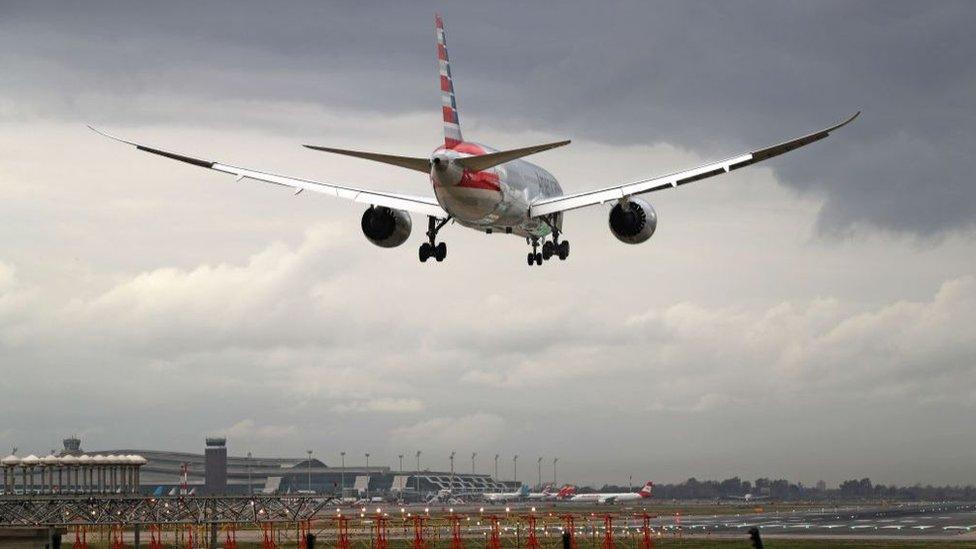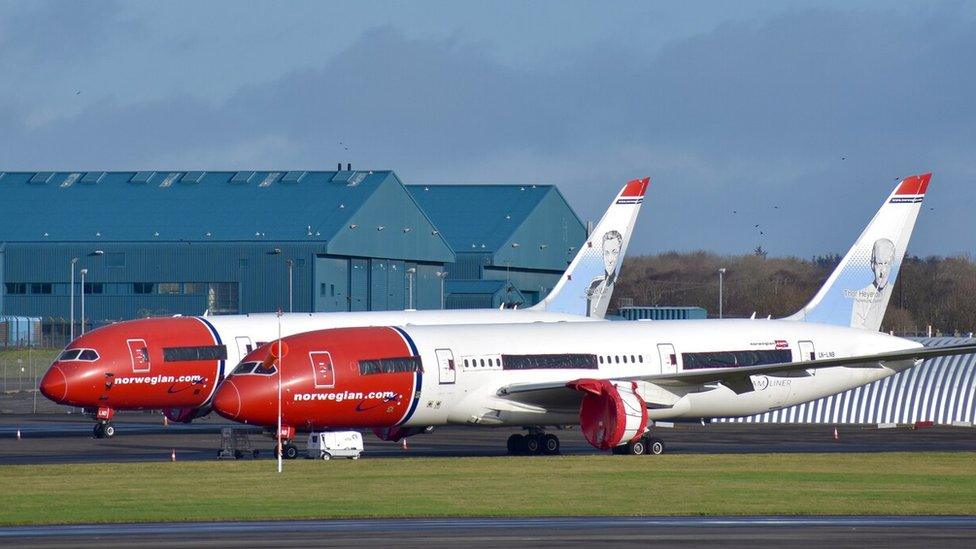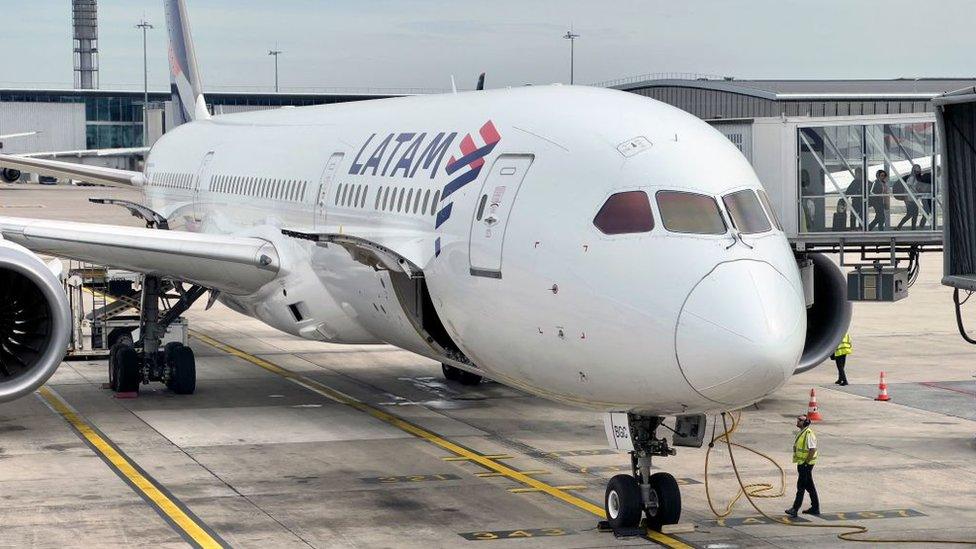Boeing hit after new whistleblower raises safety concerns
- Published

Boeing 787 Dreamliners are often used on international flights
Boeing is facing new pressure after a whistleblower reported safety concerns over the manufacturing of some of its planes to US regulators.
Engineer Sam Salehpour accused Boeing of taking shortcuts in the construction of its 787 and 777 jets.
He claimed he was "threatened with termination" after raising concerns with bosses.
But Boeing said the claims were "inaccurate" and added it was confident its planes were safe.
"The issues raised have been subject to rigorous engineering examination under [Federal Aviation Administration] oversight," the company said.
"This analysis has validated that these issues do not present any safety concerns and the aircraft will maintain its service life over several decades."
Shares in the plane manufacturer sank almost 2% on Tuesday after the Federal Aviation Administration (FAA) said it was investigating the claims, and the company reported it had delivered just 83 planes to customers in the first three months of the year - the smallest number since 2021.
The whistleblower complaint, which was first reported by the New York Times, is the latest incident to focus attention on the safety of planes made by US-based Boeing, one of the world's two major producers of commercial planes.
The company was already facing criminal investigation and other legal troubles, after an unused exit door broke off of one of its smaller 737 Max 9 planes shortly after take-off in January.
Passengers escaped serious injury but the incident has plunged the company into crisis, forcing a temporary grounding of dozens of 737 Max 9 planes, drawing regulatory probes and prompting Boeing to dramatically slow production of its planes.
The company coming under intense scrutiny again led its chief executive David Calhoun to announce last month that he would step down by the end of the year.
On Tuesday, attorneys for engineer Mr Salehpour said Boeing had made decisions for 787 aircraft assembly which placed stress on joints that linked up parts of the body of the jets, an issue affecting more than 1,000 planes.
In a whistleblower complaint filed with the FAA in January, he alleged the method could reduce the lifespan of the plane.
"These problems are the direct result of Boeing's decision in recent years to prioritize profits over safety, and a regulator in the FAA that has become too deferential to industry," his lawyers, Debra Katz and Lisa Banks, said in a statement.
The attorneys added Mr Salehpour had been transferred to work on the 777 plane after he raised concerns.
They said he had soon observed other issues in the assembly of that plane.
"He was threatened with termination, excluded from important meetings, projects, and communication, denied reasonable requests for medical leave, assigned work outside of his expertise, and effectively declared persona non grata to his colleagues," they said.
The 787 Dreamliner is a bigger plane than the 737, often used on international flights. It has been flying commercially since 2011, but almost from the start has been the target of quality complaints.
Boeing eventually slowed production and stopped deliveries for almost two years, responding to issues that had been raised. The FAA in 2022 cleared Boeing to resume deliveries.
The FAA, which has increased its oversight of Boeing since the door plug blowout in January, said in a statement that it encouraged people in the aviation industry to share information.
"We thoroughly investigate all reports," the agency said when asked about the report.
Related topics
- Published3 March 2023

- Published15 March 2024
